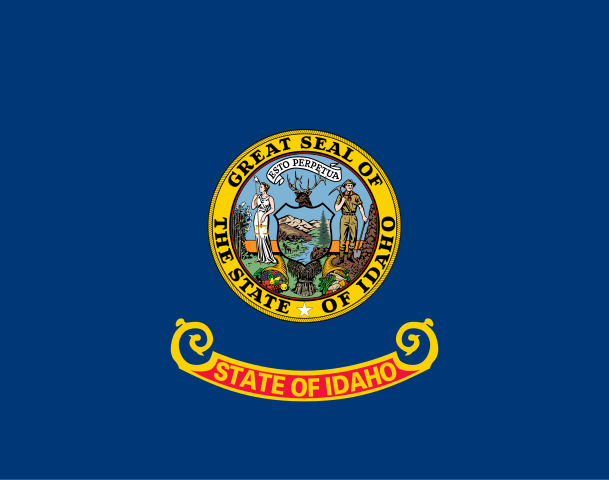Follow us on LinkedIn
Our PageIntroduction
Known as one of the hubs of R+D in the country mainly due to the presence of the Research Triangle and the white-collar industries that have sprung up around it, North Carolina is a key player in the nation’s innovation economy.
Whether you work for one of the think tanks, research facilities, hospitals, or one of the many tertiary businesses that cater to them, here is everything you need to know about North Carolina’s mileage reimbursement rates for 2023.
What is the North Carolina mileage reimbursement rate?
If you’ve read any of the other articles in this series, it should come as no surprise that North Carolina hasn’t set its own mileage reimbursement rate for 2023, as a majority of the 50 states haven’t set their own rates or adopted laws or guidelines mandating them.
In any instance where we don’t have a state rate, we can safely use the Internal Revenue Service’s federal maximum mileage reimbursement rate as a benchmark if we hope to avoid additional taxation.
For 2023, the federal maximum rate is a flat 65.5 cents per mile. Any employee driving for work and using their own personal vehicle for work can claim 65.5 cents per mile, so long as they carefully log each trip and its purpose.
The Office of State Budget and Management[1] published a memorandum for 2022 announcing that the state rate refers to the IRS federal rate.
Certain employees in segments of the public sector will also have specific mileage guidance. The official OBSM Budget Manual’s statute 5.1 it states that North Carolina state employees should use state-owned vehicles whenever possible, but if they do use their personal vehicles, they have the option of tracking actual expenses for reimbursement or “In accordance with agency’s policies, a state employee shall be reimbursed at a rate that does not exceed the business standard mileage rate set by the Internal Revenue Service (effective January 1 of each calendar year) when using their personal vehicle for state business.”[2]
A reminder that, in all cases, not just for North Carolina state employees, the cents per mile rate offered by the IRS is designated to be a comprehensive payment that includes maintenance, depreciation, repairs, oil changes and fuel costs — that is, no actual expenses can be claimed if you claim the IRS rate.
If your employees are well-organized and have receipts for their actual expenses — or if they use a mileage log — claiming them directly is an option, as long as they don’t exceed the federal cents per mile rate.
For any payment that’s above the 65.5 cents per mile rate the IRS sets, you (or your drivers) will pay additional income and payroll tax on (but only on) every cent above the maximum.
If you do claim the IRS maximum rate, it’s important that your drivers keep proper logs, and that you collect and review them quarterly. If it sounds like a chore, it can be. But every mile matters!
There are some other options to consider if you’d like to figure out how to minimize your organization’s tax burden and take advantage of the many different compensation options the IRS offers employers and their employees.
The average North Carolina mileage reimbursement
It seems that the average car allowance in North Carolina is right around the federal average of $600 a month, coming in just shy of it.
There are a number of reasons why this is the case. Because the major population centers of the Research Triangle are spread over multiple counties and census-designated places, it’s possible that employees need to log more miles to cover what might be a single municipality elsewhere.
North Carolina is also roughly equidistant between the Gulf States, which produce and refine a majority of the United States fuel, and the northern states which are overrepresented in the economy of the nation, but also have a higher cost of living. That could be one reason it’s smack-dab in the middle of the national average.
North Carolina’s mileage reimbursement tax laws
There is no federal or state law mandating employers reimburse their employees for business-related travel. However, since it is extremely commonplace throughout the country, it can be difficult to attract talent if you don’t offer one, even if it’s not legally mandated.
Think about it from the perspective of someone interviewing at multiple places for a job. If they are given a choice between two employers, and one offers them the opportunity to have their business reimbursement reported on their W-2, meaning they won’t have to do mileage tax deductions themselves, then for the same position, you’d go with the most generous offer every time.
If you don’t offer a mileage reimbursement, prospective employees might view your request to use their own vehicles for work as a nuisance or at worst a pay cut. Since your business needs reliable, competent employees, offering some sort of mileage reimbursement program makes sense.
Labor laws for mileage reimbursement in North Carolina
There are no specific labor laws on the books concerning mileage reimbursement for North Carolina, as of today’s writing in August of 2023.
Note that this doesn’t apply to workers who are filing a Workers’ Compensation claim and need to travel to a medical appointment: most states do have labor laws on the books covering this specific scenario. If that doesn’t apply to your current situation, don’t worry about it. You can confidently claim up to 65.5 cents per mile.
As we’ve noted above, some state employers may set their own policies, and those may differ from those offered by the IRS. For example, there is a memorandum[3] concerning maximum mileage rates for business vehicles and personally-owned vehicles (POVs) that applies to all employees under the umbrella of the University of North Carolina.
While some public employers, like the University system, do set mileage rates as a standard for all employees to follow, these are internal policies, and not a law that affects all employers.
Is it possible this could change in the future? Yes, but considering how many states defer to the federal mileage reimbursement rate, it doesn’t seem likely, at least for next year.
Conclusion
Now that you’re up to speed on the 2023 mileage reimbursement rate for North Carolina, we at Cardata hope you feel empowered to manage your organization’s vehicle allowance program.
Still confused? Don’t fret—this is complex stuff. That’s why Cardata has built a reputation helping businesses understand, design, and manage vehicle reimbursement programs for their workers.
Our app even takes care of the mileage logging for your drivers, making your end-of-quarter duties that much lighter.
If you want to talk directly to someone about anything discussed in this article, you can speak to a Vehicle Reimbursement Expert here.
Sources
[3] 2021 Mileage Allowances Update
Disclaimer: While Cardata cares about providing accurate and informative content, this article has not been independently reviewed by a lawyer or a tax professional, and should not be considered tax or legal advice. For the most accurate and up-to-date information on mileage reimbursement in North Carolina, please contact a chartered accountant or a lawyer licensed to practice in the state.
Share on:



